Copyright 2010 by Princeton University Press
Published by Princeton University Press, 41 William Street,
Princeton, New Jersey 08540
In the United Kingdom: Princeton University Press, 6 Oxford Street,
Woodstock, Oxfordshire OX20 1TW
A LL R IGHTS R ESERVED
Library of Congress Cataloging-in-Publication Data
Ben-Porath, Sigal R., 1967
Tough choices: structured paternalism and the landscape of choice /
Sigal R. Ben-Porath.
p. cm.
Includes bibliographical references and index.
ISBN 978-0-691-14641-6 (hardcover: alk. paper)
1. DemocracyPhilosophy. 2. PaternalismPolitical aspects.
3. Civil rights. 4. Social values. 5. Politics and culture.
6. Freedom of expression. I. Title.
JC423.B3437 2010
320.01'9dc22 2009044077
British Library Cataloging-in-Publication Data is available
This is book has been composed in Minion
Printed on acid-free paper.
press.princeton.edu
Printed in the United States of America
1 3 5 7 9 10 8 6 4 2
To Eran Noah, Itamar Eldad, and Amalia Ruth
ACKNOWLEDGMENTS
M ANY COLLEAGUES AND FRIENDS contributed to the process of writing this book, first at Princeton Universitys Center for Human Values and later at the University of Pennsylvania. For comments on anything from preliminary ideas to previous drafts of the book, I am thankful to Anita Allen, Danielle Allen, Bat-Ami Bar-On, Eran Ben-Porath, Harry Brighouse, Eamonn Callan, Orna Coussin, Suzanne Dovi, James Dwyer, Marilyn Friedman, Joan Goodman, Amy Gutmann, Michael Hand, David Hansen, Michael Katz, J. Donald Moon, Marlisa Morchella, Rob Reich, Hollis Robbins, Tamar Schapiro, William Scheuerman, Marion Smiley, Rogers Smith, Jeff Spinner-Halev, Mariah Zeisberg, and two anonymous reviewers for Princeton University Press.
I am grateful to Ian Malcolm for his steadfast support, for the books he provided, and for his good humor. Phillip Buckley and Christopher Pupik Dean provided excellent research assistance. Writing was generously supported by the Spencer Foundation.
Parts of this book were presented at Princeton Universitys Center for Human Values; the American Political Science Association; the Midwest Political Science Association; the 2007 Villemain Annual Lecture on Education, Democracy, and the Public Life at San Jose University; Tel-Aviv University; the SPEL Forum at SUNYBinghamton; the Philosophy of Education forum at Teachers College, and the Dewey Seminar on Education, Democracy and Justice at the Institute for Advanced Studies in Princeton. I thank the organizers, the commentators, and the audiences in all these forums.
Part of appeared in the Journal of Philosophy of Education. I thank these publications for permission to use these materials.
We do not get to choose most of our family members, but I cannot imagine doing any better had I had the chance to choose each one of mine. This book is dedicated to Eran Noah, whom I choose again every day, and to my beloved Itamar and Amalia, who like all children are the result of a complex set of lotteries, and are thus a living proof for me that choice can be much overrated.

1

T O C HOOSE OR N OT TO C HOOSE ?
Choice in Social and Political Thought
For most of Western political history, a majority of individuals had little opportunity to make choices about critical aspects of their lives. Social structure was formal and rigid; one was born into a given social status, with a clear life plan and very limited opportunity to alter its course. Being a good member of ones family, class, gender, and profession involved abiding by strict rules, following a course set by ancestors, social norms, and other dimensions of destiny. Think of Oliver Twists start in life in Charles Dickenss description:
What an excellent example of the power of dress, young Oliver Twist was! Wrapped in the blanket which had hitherto formed his only covering, he might have been the child of a nobleman or a beggar; it would have been hard for the haughtiest stranger to have assigned him his proper station in society. But now that he was enveloped in the old calico robes which had grown yellow in the same service, he was badged and ticketed, and fell into his place at oncea parish childthe orphan of a workhousethe humble, half-starved drudgeto be cuffed and buffeted through the worlddespised by all, and pitied by none. (p. 4)
Olivers prospects for the future become even more apparent when we compare him to the station of Mr. Fitzwilliam Darcy, an other fictional young man (though not an infant) living outside of London in the early nineteenth century. Here is his first appearance in Jane austens Pride and Prejudice:
Mr. Darcy soon drew the attention of the room by his fine, tall person, handsome features, noble mien; and the report which was in general circulation within five minutes after his entrance, of his having ten thousand a year. The gentlemen pronounced him to be a fine figure of a man, the ladies declared he was much handsomer than Mr. Bingley, and he was looked at with great admiration for about half the evening, till his manners gave a disgust which turned the tide of his popularity; for he was discovered to be proud, to be above his company, and above being pleased; and not all his large estate in Derbyshire could then save him from having a most forbidding, disagreeable countenance. (p. 7)
In these times, as in many other times and places, an individuals life was largely determined by external circumstances. Of course, one could decide to be agreeable to a greater or lesser extent, inasmuch as such traits are within ones control. But these traits account for relatively minor variations within an allotted future. Among other things, ones place of residence, her health, her employment, and other conditions and decisions that create the contours of ones life were often strictly pre-charted before birth. Parental knowledge and social conventions were considered to be better directives than ones own judgment. Traditional groups and societies today impose similar limitations on personal choice, preferring social stability, continuity, and personal submission over self-expression, personal authenticity, ingenuity, and choice.
Strong arguments can be made for either sociopolitical system, and my intention here is not to compare them or to make the case for one over the other. Rather I take as my starting point the contemporary democratic, Western sociopolitical structure and ethos that favors choice over destiny. Freedom, exercised through the choice of a life plan, is the tool for overcoming the social vision of inherent inequality or structural stratification, such as the one evident from comparing Oliver Twist with Mr. Darcy. In contemporary democracies, social mobility is embraced as a manifestation of both liberty and equality. A person is not supposed to be confined to her birthplace and to a life plan sketched for her before birth. In addition to the endorsement of a diversity of aims, democratic discourse tends to assume (even if implicitly) a revisability of ends, accepting the possibility that individuals would at some point(s) in their lives rethink their affiliations, goals, values, and visions of the good life. The combination of value pluralism and the revisability of ends sets the foundation for a social structure in which significant space is provided for individual choice. In the American public sphere, and in much of Western philosophy and politics, the notion of choice serves as a panacea to a host of policy challenges, and as a conclusive response to the predetermined life such as that of the Victorian era or of traditional cultures. Choice offers equality of status, which stands in opposition to premodern and aristocratic visions of destined roles. Allowing individuals to develop a life plan, to chart their own paths, to be the authors of their lives, seems to offer an appropriate way to implement the values of equal standing and equal dignity.

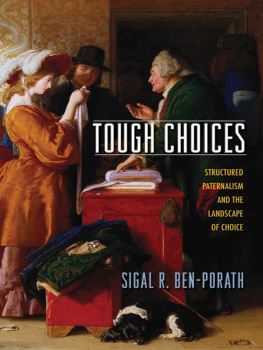
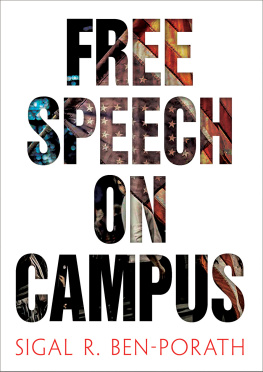


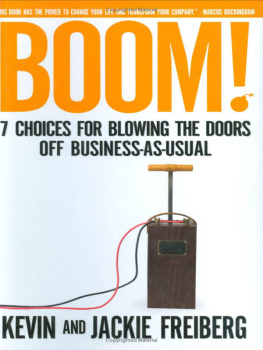
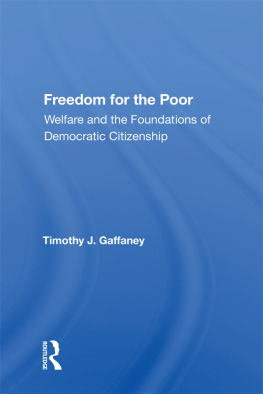
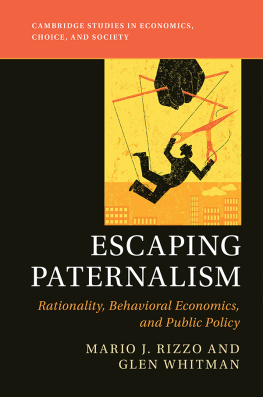
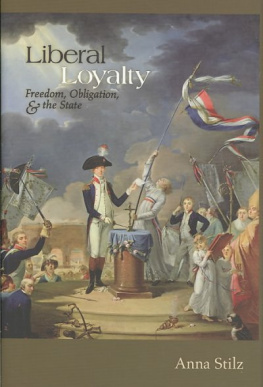


 1
1